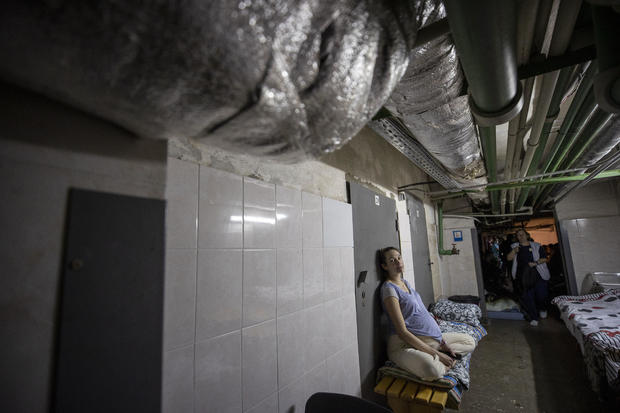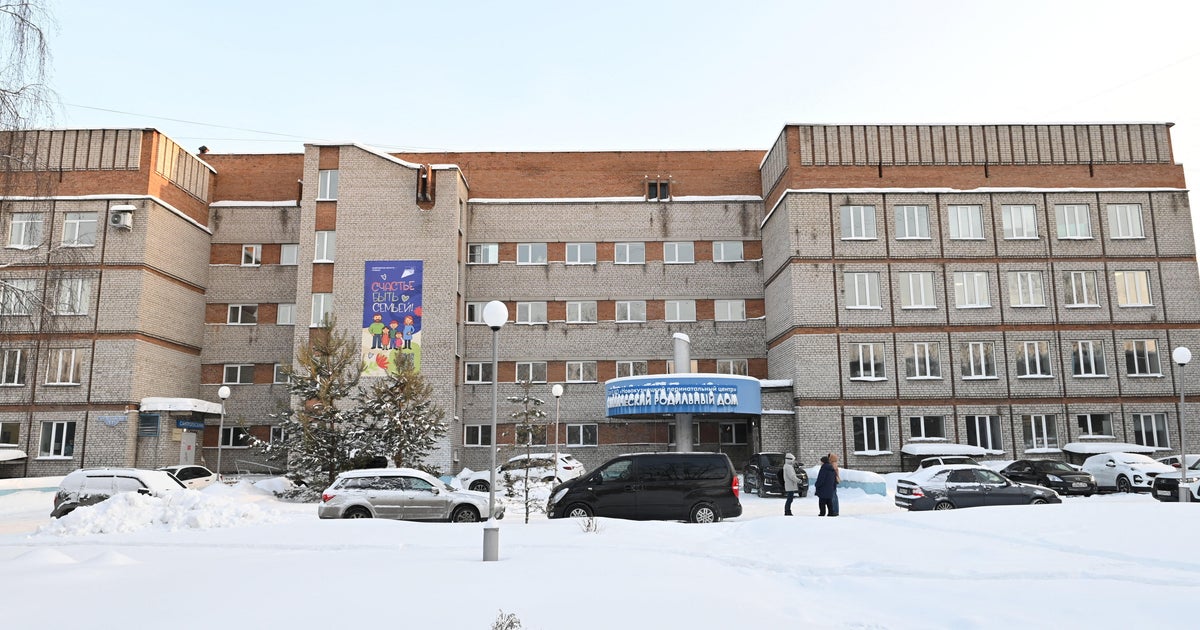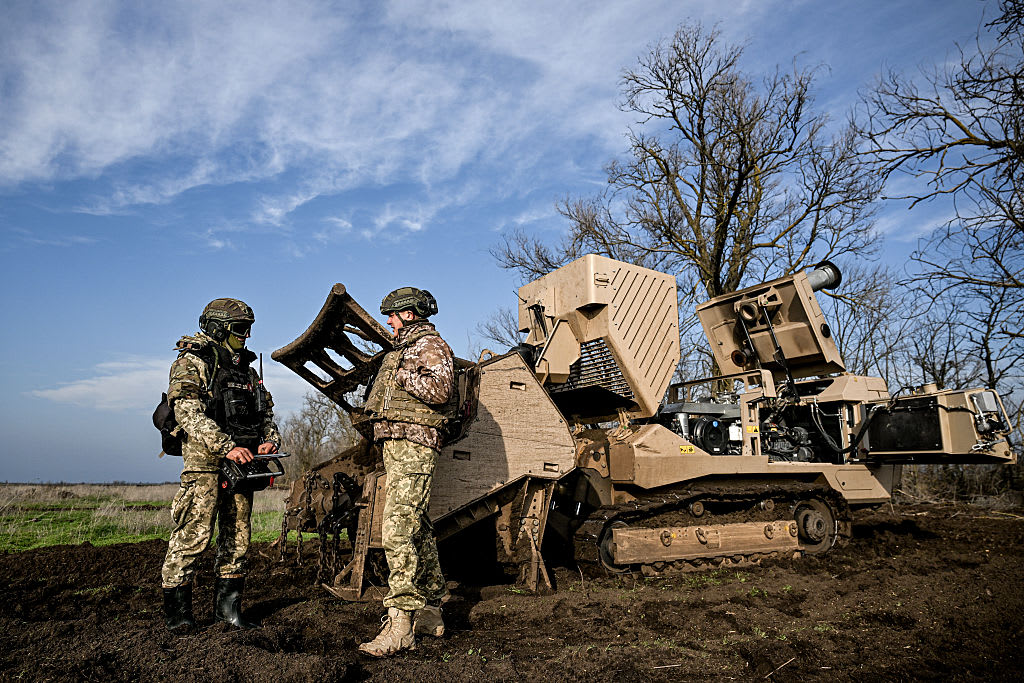"We are living in real hell": Ukrainian women describe giving birth in the middle of Russian invasion
For many women in Ukraine, the deadly Russian invasion came as they were preparing to bring new life into the world. Now, they're giving birth in a war zone.
"We are living in real hell," Alena Shinkar, a pregnant woman in Kyiv, told Reuters on Wednesday. She is staying in the cellar of a maternity hospital, along with many other expecting and new parents.
Shinkar woke up to the sound of an air raid at 5 a.m. on February 24, the first day Russian forces attacked the country.
"I heard the explosion and women scream. The war started. And I could not believe. I thought it was some nightmare," she said. "But it is what it is. This is how we are living."
Also on that day, another mom, Yula, arrived at the same hospital. Four days later, she gave birth to a son named Mark.
"We are safe here," she told Reuters. "The best personnel in the world. The best staff works here and we are very proud of them."
Dmytro Govseyev, the head of the maternity hospital, told Reuters that his team has been working around the clock since the attack on Ukraine began. Most of his staff has not left the hospital in a week.
"About 70% of staff stay here permanently," he said. "We take turns at work."
The situation for his staff is relatively the same, except when danger nears, he said. When an air raid siren goes off, women have to be moved to the shelter. And that move must happen quickly.
"I saw women are giving birth just in here, in a basement. And they were all in blood because they'd had, for example, c-section, and then again the alarm started and they needed to go down," Shinkar said. "So basically they didn't even have time to lie after the c-section. It's terrible. It's terrible experience."
Dr. Vladyslav Berestoyvi, an obstetrician at Kyiv State Maternity Hospital No. 5, told CBS News on Wednesday that it's been difficult for doctors to see so many parents giving birth "while missiles attack near our hospitals."
Many women have had to give birth alone.
"Some of them [are] staying alone in the hospital because their partners are involved in the protection of our state or our city," Berestoyvi said, while others are too scared to even go to the hospital.
Despite all of this, his team successfully delivered more than 100 babies this week. "Thank God," he said.
Although his hospital is well supplied for now, "you never know what will be tomorrow," Berestoyvi said.
Other hospitals throughout Ukraine are dealing with a large number of casualties from the invasion, meaning their supplies are dwindling, Berestoyvi said.
Shinkar, who is anxiously awaiting the arrival of her baby, has been passing the time by reading "A Short History of Europe" from her makeshift cot.
"I never imagined that something like this could happen in the 21st century, in the capital of a European country," Shinkar said. "That our neighbor that we always thought are our brother can just attack like that. ...I hope the world can do something for us."






